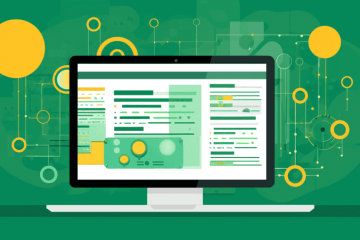Introduction
Artificial Intelligence (AI) is revolutionizing the healthcare industry, ushering in a new era of innovation and patient care. From diagnosing diseases to optimizing treatment plans and streamlining administrative tasks, AI has demonstrated its potential to enhance efficiency, accuracy, and accessibility in healthcare technology. In this article, we explore the myriad ways AI is reshaping healthcare, driving advancements in patient care, research, and medical decision-making.
- Disease Diagnosis and Early Detection:
- AI-powered diagnostic tools are capable of analyzing vast datasets of medical images, such as X-rays, MRIs, and CT scans, with remarkable accuracy. These tools can detect anomalies, identify tumors, and assist in early disease detection.
- In dermatology, AI algorithms can analyze images of skin lesions and moles, helping to identify potential skin cancer cases early.
- Personalized Treatment Plans:
- AI leverages patient data, including genetics, medical history, and treatment outcomes, to create personalized treatment plans. This ensures that patients receive tailored interventions, optimizing their chances of successful recovery.
- AI can analyze drug interactions and predict patient responses to specific medications, minimizing adverse effects and improving treatment efficacy.
- Drug Discovery and Development:
- AI accelerates drug discovery by analyzing large datasets and identifying potential drug candidates. This expedites the process of bringing new medications to market, addressing unmet medical needs.
- Machine learning models can predict how different compounds will interact with biological systems, allowing for more targeted drug development.
- Remote Patient Monitoring:
- AI-driven wearables and monitoring devices enable continuous remote tracking of patients’ vital signs and health metrics. These devices can alert healthcare providers to potential issues in real-time, facilitating early intervention.
- Chronic disease management becomes more effective with remote monitoring, reducing hospital readmissions and healthcare costs.
- Administrative Efficiency:
- AI automates administrative tasks such as appointment scheduling, medical billing, and insurance claims processing. This frees up healthcare professionals to focus on patient care.
- Chatbots and virtual assistants handle patient inquiries, appointment reminders, and prescription refills, improving patient engagement and satisfaction.
- Epidemiological Surveillance and Predictive Analytics:
- AI analyzes data from various sources, including social media, to monitor disease outbreaks and predict trends. This helps public health authorities make informed decisions and allocate resources efficiently.
- Predictive analytics also assist in resource allocation within healthcare systems, ensuring that hospitals are prepared for surges in patient demand.
Challenges and Considerations
While AI offers transformative potential in healthcare, there are challenges to address:
- Data Privacy and Security:
- Handling sensitive patient data requires stringent data privacy and security measures to protect patient information from breaches and cyberattacks.
- Regulatory Compliance:
- AI healthcare applications must adhere to stringent regulatory standards, such as HIPAA in the United States and GDPR in Europe, to ensure patient rights and data protection.
- Ethical Concerns:
- AI algorithms must be transparent, unbiased, and accountable. Ensuring that AI-driven decisions are fair and do not discriminate against certain patient populations is an ongoing challenge.
- Interoperability:
- Healthcare systems and devices must be interoperable to facilitate seamless data sharing and communication among different healthcare providers and institutions.
Conclusion
AI is a transformative force in healthcare technology, enabling more accurate diagnoses, personalized treatments, and enhanced patient care. As AI technology continues to evolve, the healthcare industry must strike a balance between embracing innovation and addressing challenges related to data privacy, ethics, and regulatory compliance. Ultimately, the successful integration of AI into healthcare promises to improve patient outcomes, reduce costs, and shape a more efficient and accessible healthcare ecosystem for everyone.




